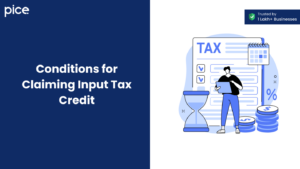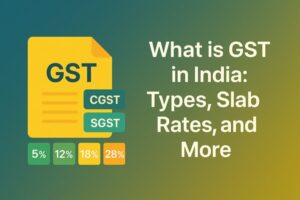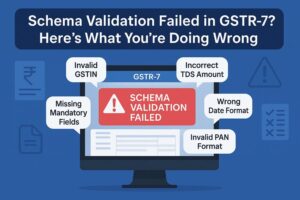GST on Car Insurance in India
- 2 Sep 24
- 7 mins
GST on Car Insurance in India
Key Takeaways
- GST on Car Insurance: The introduction of GST in 2017 increased the tax rate on car insurance premiums from 15% to 18%, resulting in higher costs for policyholders.
- Unified Taxation: GST replaced multiple indirect taxes like service tax and excise duty, streamlining the taxation system in India.
- Impact on Premiums: The 3% increase in tax due to GST has led to a significant rise in car insurance premiums for customers.
- GST Number Addition: Business entities can add their GST number to car insurance policies to claim returns on GST paid.
- Choosing Affordable Insurance: It's crucial to compare pre-GST premiums to find car insurance with lower overall costs, even after GST.
GST on car insurance has become mandatory in India after the introduction of Goods and Services Tax (GST) in 2017. It ensures payment of taxes to the government by the insurance purchaser or the vehicle owner.
In this blog, we will walk you through what GST is and how it impacts car insurance policies while highlighting how GST on insurance premiums impacts customers.
What Is GST?
Prior to 2017, there used to be various types of taxes on goods and services sales. Central Excise Duty, Interstate Sale of Goods tax (IST), service tax, value-added tax (VAT), entry tax, luxury tax and purchase tax were the different types of taxes in the pre-GST time.
The Government levied a single and unified taxation system to replace all the taxes of the pre-GST era. The newly imposed tax is known as the Goods and Services Tax (GST). Thus, any tax levied by the Central or State Government on the supply of goods and services is GST.
The Central Government collects central goods and services tax (CGST) while the State government collects state goods and services tax (SGST) on the supply of goods and services within a state. Additionally, the Central Government collects integrated goods and services tax (IGST) on goods and services supply between states.
GST & Insurance
There are two broad categories of insurance plans available in India. Let us first discuss these two:

- Life Insurance: This type of insurance can be categorised into term insurance, unit-linked insurance plans and endowment plans.
- General Insurance: This type of insurance can be classified into health insurance, car insurance and two-wheeler insurance.
The relationship between GST and insurance is associated with the premium and the risk factor component. The premium is exempted from income tax. However, the risk factor is taxable in accordance with the current tax regime.
As a result of the GST imposition, insurance premiums increased by 3%, from 15% in the earlier taxation system to 18% in the current taxation system.
Effect of GST on Car Insurance
The car or vehicle insurance premium increased by 3% under the GST taxation regime. In the previous regime, it attracted 15% as service tax while as GST it attracted 18%. The policyholder bears the increase in tax by paying a higher premium for car insurance.
Impact of GST on Car Insurance Premium
All goods and services in India attract GST including car insurance premiums. In the pre-GST era, there were several indirect taxes such as sales tax, service tax, excise duty and other state taxes. All the mentioned taxes have been merged to form GST in India.
Prior to the introduction of GST, the service tax on car insurance premiums was 15% (where 14% was service tax, 0.5% was Krishi Kalyan cell and the remaining 0.5% was Swachh Bharat cess). With the introduction of GST, the tax rate has been increased to 18% on car insurance premiums. As a result, car insurance premiums increased significantly in India. To compensate for this added cost, several leading insurance companies in India offer additional coverage and benefits such as roadside assistance services.
Car Insurance Policy Compare

GST implementation has increased the insurance premium for vehicles by 3% tax. Ensure you compare the premiums of vehicles, which was applicable before 2017 to purchase car insurance with affordable premiums. A lower premium before GST will lead to a lower premium with GST for car insurance.
How Does GST Impact Customers?
The customers have to bear the increase in tax due to the introduction of GST. It increased tax by 3% for the customers. Consider the following example to understand the impact of GST on customers:
| Car Insurance Premium | Pre-GST Rate | Service Tax | Total Premium in the Pre-GST Era | GST Rate | Service Tax | Total Premium After GST |
| ₹10,000 | 15% | ₹1,500 | ₹11,500 | 18% | ₹1,800 | ₹11,800 |
Thus, with the introduction of GST, the total premium payable increased by ₹300 compared to the pre-GST era. However, as on-road vehicle insurance is mandatory, as a customer, you cannot avoid paying GST on car insurance for your vehicle.
Can You Add the GST Number to a Car Insurance Policy?
A GST number is a 15-digit unique identification number (GSTIN) that every GST-registered person has. You can use the number to file a GST return as it is based on your PAN. If you are a dealer, supplier or business entity, you can obtain a GSTIN and claim for returns of GST paid.
You can easily add your GST number to your car insurance policy terms. To add the GST number to your car insurance policy, you can connect with the customer care of the vehicle insurance providers or the insurance broker and seek assistance.
Conclusion
Now that you know how GST on car insurance impacts customers, ensure you choose vehicle insurance companies with lower premiums to make your total premium inclusive of GST affordable and make appropriate insurance-related decisions.
Further, you can consider assistance from insurance providers to add your GST number to the insurance policy seamlessly and accurately.
💡If you want to pay your GST with Credit Card, then download Pice Business Payment App. Pice is the one stop app for paying all your business expenses.
 By
By 
















